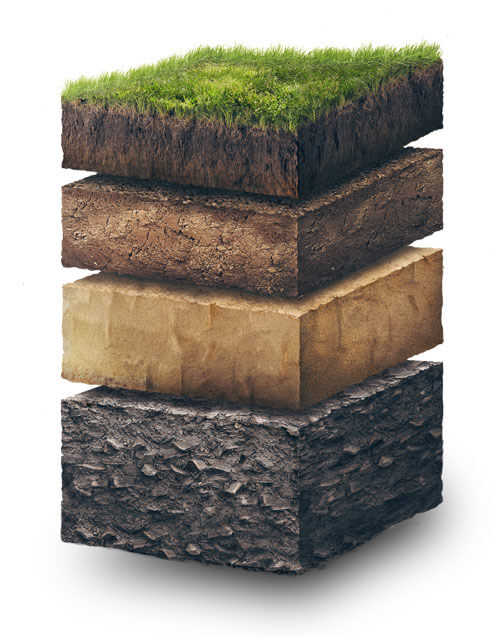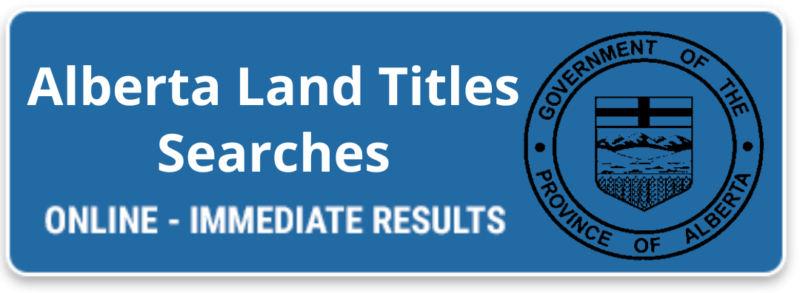Alberta Land Titles
In 1988, the Alberta Land Titles Automation (ALTA) database was created, which facilitated online access to land titles in Alberta. However, there are millions of live and cancelled land titles currently listed in the database. Our registry can help you acquire a copy of a land title by performing a search request for a reasonable fee. Land title search information is open to the public and is used most often by the government, real estate companies, banks, lenders, lawyers and individuals, among others.
How does it work?
Whether you’re the sole owner, tenancy-in common, or have joint tenancy, we’ll perform a land title search by legal land description or land identification number code (LINC). We can do a title search from a street address too.

Our land title services include:
- Surface and Mineral Title Searches
- Land Title (Documents, Surveys, and Plans) copies
- Legal Description Services
- Regular, Certified and Historical Title Searches
- Document Searches (Caveats, Encumbrances, Easements)
- Document Registration (Discharge of Mortgage, Transfer of Land)
We also provide historical title searches, which were recorded before the automated database. These searches are available to order and will be sent to you by regular mail. Do you need to register documents or plans at the Land Titles office? You’ll need to fill out a Document Registration Request Form (DRR). Fill out the instructions to prevent any registration delays, including a check to see if the titles are consistent if the DRR affects multiple lands. Questions? | Contact Us
Fun Facts!
- In the past, legal title might also have included mineral ownership, but most titles in Alberta are now separated into “surface only” titles and “minerals only” titles.
- Even if you have title to land, such as the one where your home sits, no one except the Crown has absolute ownership of the land.
Come visit our Edmonton office or call us if you’re not sure of the process. Riverbend Registry conducts Land Title searches in Alberta, British Columbia, Saskatchewan and Manitoba. It’s easy to order certified copies of land titles and other related documents through our registry. But, if you need to contact the Land Titles offices in Alberta, there are two offices in Alberta; one in Edmonton and one in Calgary. For additional information regarding Land Titles click on the Service Alberta link or Contact Us. Contact Us Service Alberta

Tips for Farm Land Sale (Transfer of Land) in Alberta
If you own farmland in Alberta that you’re looking to sell, timing is on your side – land prices in Alberta have grown over the past few years, and you could be looking at real financial gain. That said, the process isn’t quite as simple as that, and there are a lot of factors you want to take into consideration when making this decision. Before you agree to a transfer of land, be sure to cover all your bases by informing yourself with the following advice.

Land Rights
First of all, you need to make sure you know the exact legal ownership of your property before you agree to a transfer of land. This means knowing precisely what your land consists of; for example, who has the rights to any permanent fixtures on your property? Are there any bodies of water on your property that you possess and want to retain rights over? How about mineral rights? While in Alberta, mineral rights generally belong to the Crown, there are exceptions, and if you do own these mineral rights, you want to make sure that you either want to sell them along with the rest of the property or specify otherwise in the contract. Questions? Contact Us
Ownership and Restrictions
It is important that you understand what kind of ownership you hold over your property. If you’re married or in a common-law partnership, do you and your spouse share joint tenancy? If you don’t, it may be something worth thinking about, even if you aren’t considering selling the land. One of the features of joint tenancy is a “right of survivorship,” which means, in the event that one spouse dies, the other assumes full ownership of the property, and the deceased’s estate does not need to be subjected to any formal administration beforehand. You also need to consider if there are any restrictions or claims on your property that interfere with your ability to move forward with a transfer of land. Any such third party – for example, a renter – may need to give their consent in order for you to be able to carry out a sale.

Tax Considerations
Since selling your property will affect your income taxes, there are a number of things you’ll want to think about when deciding if and how you want to carry out your transfer of land. Since GST applies to sales of commercial property, your sale may be subject to GST; however, a GST exemption can apply in some conditions, such as if the buyer is a related party who does not intend to use the land for commercial purposes. This is only one of the tax considerations you need to account for when selling your property, though, and you want to make sure you know all of the ways your income tax might be affected. It’s highly advisable that you consult with a professional when it comes to these matters.
